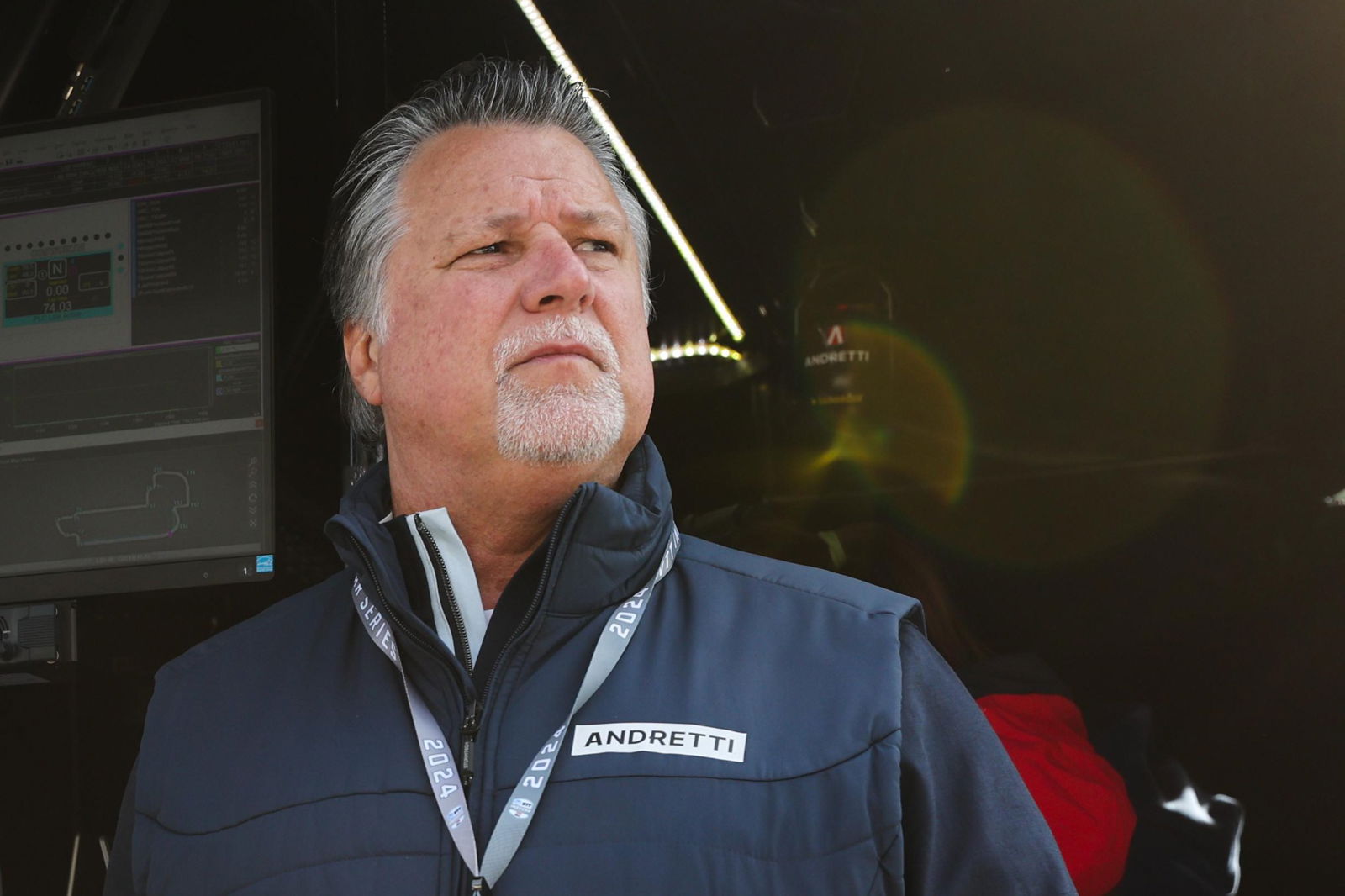

The bipartisan letter, addressed to Liberty Media president and CEO Greg Maffei, asks three questions about Andretti Global’s failed attempt to secure a place on the F1 grid.
Andretti had its application rejected earlier this year with Formula 1 reasoning that the positive commercial impact on the championship was not demonstrated, among other arguments.
Those included the difficulty in starting a new team from scratch and FOM’s insistence that it proves competitive from the outset – with an almost impossibly high bar set for admittance.
With the backing of General Motors through its Cadillac brand (though it wouldn’t enter as a power unit supplier until 2028), Andretti Global was billing itself as an all-American entry into the world championship.
It is that point, and the fact Liberty Media is an American organisation, that has prompted Congress to write to Maffei.
“We write to express our concerns with apparent anti-competitive actions that could prevent two American companies, Andretti Global and General Motors (GM), from producing and competing in Formula 1,” the letter outlined.
“Last year, the Federation Internationale de l’Automobile (FIA), the sole and independent arbiter of entry into Formula 1, approved Andretti Global to enter Formula 1 racing starting in 2026.
“However, despite FIA’s approval of the Andretti Global partnership, Formula One Management (FOM), the commercial rights holder owned by Liberty Media Corporation, rejected Andretti Global’s admission.
“FOM’s rejection appears to be driven by the current line-up of European Formula 1 race teams, many of which are affiliated with foreign automotive manufacturers that directly compete with American automotive companies like GM,” it added.
“It is unfair and wrong to attempt to block American companies from joining Formula 1, which could also violate antitrust laws.”
The letter, addressed May 1, seeks a response to three questions no later than May 3.
They relate to Formula One Management’s authority in rejecting Andretti Global’s entry, how that action complies with antitrust laws in the United States, and what influence the existing teams or their affiliated automotive partners had in that decision.
While owned by Liberty Media, FOM is registered and operates out of the United Kingdom.
The entry process into Formula 1, under the current Concorde Agreements, is different to what it once was.
Previously, the FIA was the sole gatekeeper.
Now, a clause within the Concorde Agreements empowers the sport’s commercial rights holder.
That was introduced to cover the risk associated with television broadcasts and the fact it wasn’t compulsory for teams to sign the Concorde Agreement.
The Concorde Agreement was formerly a bilateral agreement between the individual team and Formula One Management.
Ostensibly, it was an exchange of commercial rights from teams to FOM in exchange for access to a prize money fund based on a performance-related sliding scale.
Hypothetically a team could have competed without signing the agreement, leaving FOM without rights to broadcast it on the global television feed.
While it never happened, it was a potentially disastrous risk when considering coverage of a race start, for example.
To avoid that, a clause was inserted mandating that all teams agree to two different Concorde Agreements, essentially making it a unilateral agreement, a point highlighted by Ferrari when it signed up to the current deal in 2020:
“The agreement, which was signed with the Fédération Internationale de l’Automobile (“FIA”) and Formula One World Championship Ltd. (“Formula One”), defines the regulatory and governance aspects of the highest level motorsport series. The commercial aspects are defined in the agreement between Ferrari and Formula One.”
In that new deal, Formula One Management was also given the ability to sign off on any new entries, hence the FIA’s approval of Andretti Global was insufficient.
FOM issued a 20-point statement outlining its rationale for rejecting Andretti’s entry, noting the lack of engine partner before 2028, in addition to the challenge of building a competitive car from the outset and broader commercial considerations.
That reasoning has clearly been insufficient in the eyes of the United States Congress which now questions the decision and its potential legal implications.
Incidentally, Liberty Media, in its 2021 annual report, noted the potential for conflict under competition laws.
“Formula 1 is also required to comply with general European Union and national competition laws, which require Formula 1 at all times to ensure its business practices and agreements are consistent with the operation of competitive markets” it noted.
“Failure to comply with the relevant practices, terms, laws and rules can give rise to challenges by the [European Commission], national competition regulators and other interested parties.
“In addition, they could cause or deem certain of Formula 1’s commercial contracts (including the Team Agreements) to be unenforceable in whole or in part and/or require various terms (including duration, scope and exclusivity) to be modified, and/or Formula 1 could be liable for damages or other sanctions.
“Formula 1 has sought to adopt practices and conclude commercial contracts that take into account competition law as it applies to the specific nature of Formula 1’s sporting and entertainment businesses, Formula 1’s role within those businesses and the roles of the counterparties to Formula 1’s commercial contracts.
“However given the uncertainty of the law in this area, and the possibility of third parties instigating action, there is a risk of further EC investigations, challenges or proceedings against Formula 1.
“For example, two Teams made a complaint against Formula 1 to the EC in September 2015 regarding the distribution of the Prize Fund and current sporting governance arrangements (though Formula 1 rejected the complaint as being without merit and believed it was in any event, a commercial dispute and not one that involved any breach of competition law).
“Although this particular complaint was withdrawn by the two Teams in early 2018, for the reasons set out above, no assurance can be given that there will be no future EC investigations, challenges or proceedings regarding unasserted matters.”
It’s believed that the challenge those teams raised was the catalyst for the change in the Concorde Agreement, which gave FOM the authority to reject Andretti’s entry.



















Discussion about this post